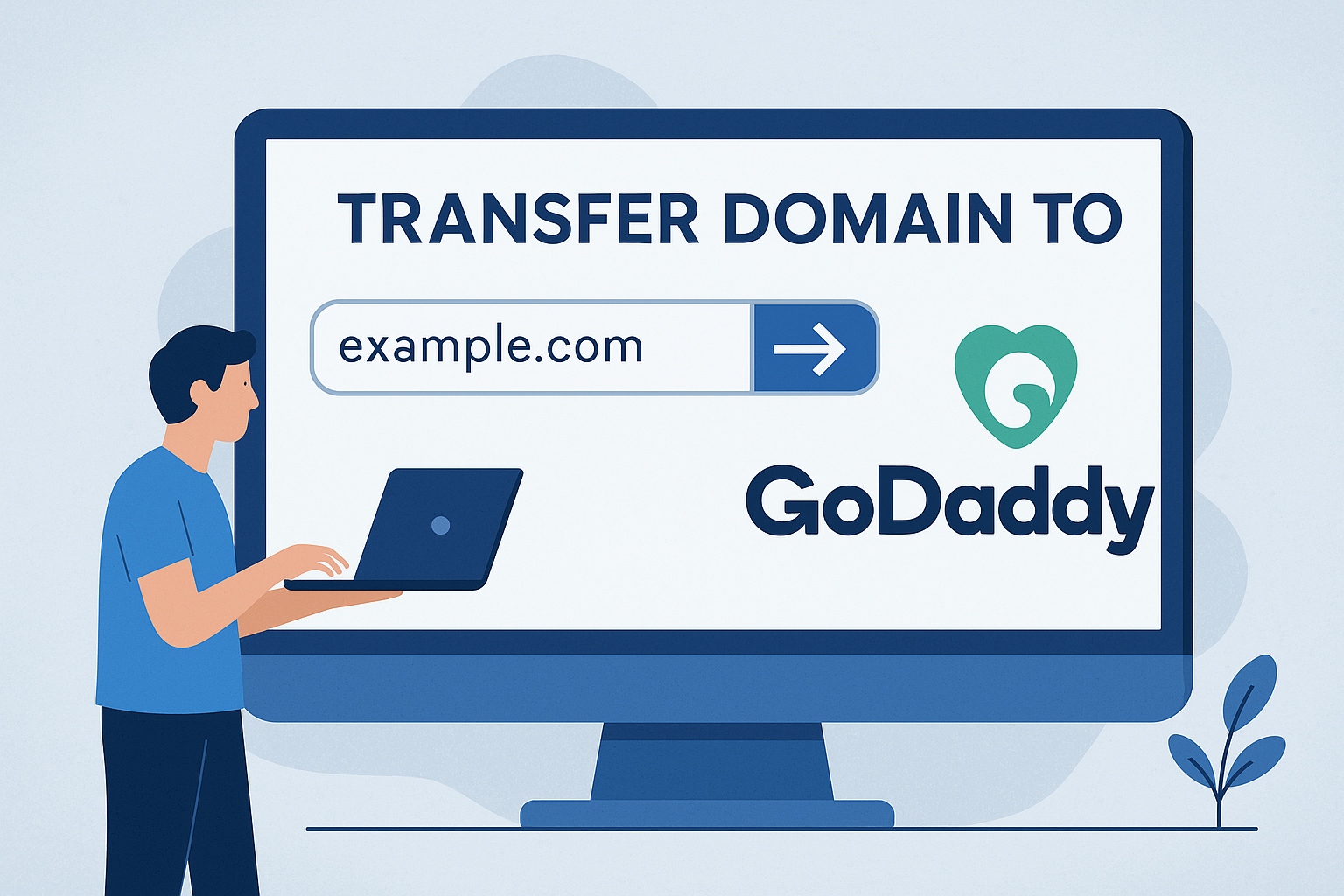Advertising disclosure
Hosting Canada is community-supported. We may earn a commission when you make a purchase through one of our links. Read Disclosure.
SiteGround vs GoDaddy Review


Many new website owners ask how pivotal a role their web hosting provider plays for their site’s success. At the surface level, it may seem like all providers are equal.
However, by doing a deep dive into two providers—like this SiteGround vs GoDaddy comparison—you can see that no two web hosting companies are equal. With a thorough review of the two companies, you’ll know which hosting provider is the better option for your website.
In this guide, we’re going to do a thorough review of both SiteGround and GoDaddy to help you better understand the differences between the two as well as which one is superior.
SiteGround vs GoDaddy Features Compared

Any time that you’re in a position to purchase one of two things, you have to compare the features they offer. If you need car insurance, you’re going to be fully aware of what is covered by each insurance policy before you purchase one.
The same is true of web hosting—you need to know the precise features offered and if you have limits on certain features.
SiteGround Key Features
SiteGround is one of the better web hosting companies when it comes to its features. However, they are not perfect as will be shown. SiteGround offers three tiers of basic shared web hosting services. The entry-level tier, called the StartUp plan, is what we’ll be covering.
In the StartUp plan, users get hosting for one website which will include one free email account, a free CDN, a free SSL certificate, out-of-the-box caching, eCommerce support, managed WordPress support, unlimited databases, and a 99.9% uptime guarantee.
SiteGround also allows the addition of collaborators which is a great feature when you want multiple people to work on the website.
The downfall of SiteGround is that it limits the amount of storage and the number of site visits per month. Each website receives 10GB of web space and can handle roughly 10,000 visits per month.
The last feature that clients should know is the guarantee. SiteGround offers a 30-day money-back guarantee.
GoDaddy Key Features
Similar to its competitor, GoDaddy offers various tiers of shared hosting plans. The basic plan for beginners discussed here is the Economy plan.
The Economy plan also provides hosting support for only one website. With that website, customers get a free domain name, a free Microsoft 365 email account, one-click WordPress installation and support, one-click installation of over 150 applications, a user-friendly cPanel for website management, 10 databases, and unmetered bandwidth.
On top of that, GoDaddy provides 100GB of web storage—ten times the amount offered by SiteGround.
Each website hosted by GoDaddy also receives 24/7 security features, a 99.9% uptime guarantee, and extra resources on-demand with a one-click purchase option.
However, just as SiteGround has some flaws, GoDaddy lacks some features as well. In GoDaddy’s Economy plan, there is no SSL certificate included.
What’s more, GoDaddy has a 30-day refund policy, but the company policy states that if the Hosting Service has been performed, the plan is non-refundable.
Comparing the features of GoDaddy and SiteGround is not easy as they both seem to have solid features at the entry-level.
However, considering that SSL certificates are virtually essential for any website and that GoDaddy has a poor refund policy, we’ve concluded that SiteGround has the better features.
Winner: SiteGround.
SiteGround vs GoDaddy Speed Compared

When you’re comparing web hosting companies, you must be aware of how well each company performs in speed tests.
If your website doesn’t have optimal page load speeds, you’re at risk to lose a lot of potential clients and website visitors. Check out the speed comparison for SiteGround vs GoDaddy to see which will set your website up for success.
SiteGround Speed
When it comes to speed, you have to look at the numbers, and SiteGround’s numbers back up the claim that it’s a reliable and fast web hosting provider. Using Pingdom, we’ve analyzed the average response times posted by websites that are hosted by SiteGround.
Over the past week, Pingdom has reported that websites hosted by SiteGround have an average page loading speed of around 0.35 seconds.
In February 2022, the average response time is reported to be 0.436 seconds. And finally, looking at the past 12 months of Pingdom data, SiteGround has shown an average of 0.429 seconds.
SiteGround is an international company that manages data centers around the globe. The main data centers are in Australia, the United States, Singapore, the UK, and the Netherlands. These global data centers help maintain impressive speed scores for clients across the world.
GoDaddy Speed
GoDaddy has always had a reputation of being a fast web host provider. Whether this was a marketing ploy or a reputation built by customer reviews is beyond the point as the company’s stats back up the claim.
According to Pingdom’s speed tests, GoDaddy has shown to have an average response time of just under 0.3 seconds over the past week.
In February 2022, GoDaddy has reported an average response time of 0.305 seconds. Looking at the past 12 months of data, the average page response time hovers around 0.446 seconds.
GoDaddy has servers located all across the globe. Its primary data centers are in the United States, Singapore, and the Netherlands. These three locations allow GoDaddy to keep consistent and fast speeds for its customers around the globe.
Looking at the speeds of GoDaddy vs SiteGround shows promising results. Both companies show impressive speeds that remain consistent around the world as they each have data centers on various continents.
To choose a winner for speeds, we have to go with the numbers—in this SiteGround vs GoDaddy review, SiteGround edges past slightly making it the better option for speed.
Winner: SiteGround.
SiteGround vs GoDaddy Customer Support Compared

Have you ever tried to contact customer support only to wait for days or weeks before receiving a response?
If you have an issue with your website hosting company, you can’t afford to wait to speak with customer support.
Check out how the customer support teams of GoDaddy and SiteGround stack up against each other to see which one you can rely on.
SiteGround Customer Support
SiteGround provides customers with 24/7 access to its customer support team. As a current customer, you can contact support via live chat and phone.
You can also submit tickets via their help desk system provided that you follow a flow of support which is as follows.
SiteGround first directs customers to its Help Center. Here, you can find plenty of resources, FAQs, guides, and more. You can use a search bar to look for similar issues that have already been answered.
If you haven’t been able to find a solution, you can fill out a form that allows you to get in touch with the customer support team.
SiteGround states on its website that when you submit a Helpdesk ticket, you receive a reply within 15 minutes and that the case is typically solved within a single reply.
GoDaddy Customer Support
GoDaddy customers also have 24/7 support available to them. Customers can contact support via phone or chat. Not only that, but GoDaddy has a directory of global numbers, so customers from more than 50 countries can call a number from their country.
Just like SiteGround, GoDaddy has a Help Center filled with resources. GoDaddy provides resources and guides for Microsoft 365 support, marketing support, WordPress support, and much more.
Where GoDaddy shines in its support is the community. GoDaddy has a large community of users who utilize a forum for questions and answers. Here, you can post questions and see if anyone has experienced something similar or has an answer.
While GoDaddy does have an option for logging a ticket, it’s reported to be a bit more difficult than SiteGround. What’s more, GoDaddy’s 24/7 phone lines and live chat are both known to have long wait times.
When you compare GoDaddy vs SiteGround for customer support, SiteGround barely narrows ahead. GoDaddy’s strong community is quite attractive. However, the support team of SiteGround seems to be faster and better at resolving issues than GoDaddy.
Winner: SiteGround.
SiteGround vs GoDaddy Pricing Compared
![]()
There’s nothing more frustrating than paying for a service and later finding out that you’re paying more for less when you compare the services and prices with a competitor.
Check out all the pricing options of SiteGround and GoDaddy to see which offers the better bang for your buck.
SiteGround Pricing
SiteGround customers have three options when selecting a shared web hosting plan. The company offers the StartUp plan, the GrowBig plan, and the GoGeek plan. The StartUp plan is the cheapest option and comes with all the entry-level features discussed above.
As you move up the tier, the plans cost more, but you also receive enhanced benefits. Each plan costs $3.69 per month, $6.19 per month, and $9.99 per month when you pay for 12 months upfront.
SiteGround publicizes that its best-selling plan is the GrowBig plan. This is marketed towards users or businesses who will want to host more than one website in the future and who expect more than 10,000 monthly visitors.
In addition, the GrowBig plan also provides on-demand backup copies of your websites, 30% faster PHP, and staging.
For only $6.19 per month, SiteGround offers an attractive plan with great out-of-the-box features with support on unlimited websites and additional advanced features.
GoDaddy Pricing
Similar to SiteGround, GoDaddy provides various pricing options. Customers can choose from one of four plans called the Economy plan, the Deluxe plan, the Ultimate plan, and the Maximum plan. These four options cost $4.19, $5.99, $11.99, and $19.99.
However, this is only if you pay for 36 months upfront. If you only want to pay for one year, you’ll pay $11.99 per month for the Economy plan.
GoDaddy recommends the second-highest tier—the Ultimate plan—as it offers increased processing power, unlimited websites, unlimited storage, and a free SSL certificate.
Something of note is that GoDaddy does not offer an SSL certificate until this tier which means if you don’t want to pay the $124.99 per year, you’ll have to purchase a certificate separately.
Comparing the prices between SiteGround and GoDaddy shows a clear winner. Not only does SiteGround advertise more affordable prices at every comparable tier, but they also include greater features such as a free SSL certificate and staging.
Not only that, but if you don’t pay for a 36-month plan with GoDaddy, you’ll be paying nearly double what you would with SiteGround. Therefore, SiteGround is the winner when it comes to price.
Winner: SiteGround.
Final Verdict: SiteGround vs GoDaddy
After doing a deep dive into the features, speed, customer support, and pricing options for both SiteGround and GoDaddy, there is a clear winner. SiteGround edges past GoDaddy in each of the four categories we reviewed.
The web hosting company offers all the features a website could need in an entry-level tier for a great price. What’s more, as you look at SiteGround’s other pricing options, you receive great features for a small increase in price.
While SiteGround and GoDaddy both have impressive speeds, according to Pingdom, SiteGround is slightly faster.
For customer support, there is no question that SiteGround is the better option. SiteGround offers several channels of contact, an abundance of resources, and friendly and quick-to-respond support staff.
If you’re choosing a web hosting provider when it comes to SiteGround vs GoDaddy, we recommend SiteGround as the best option.










